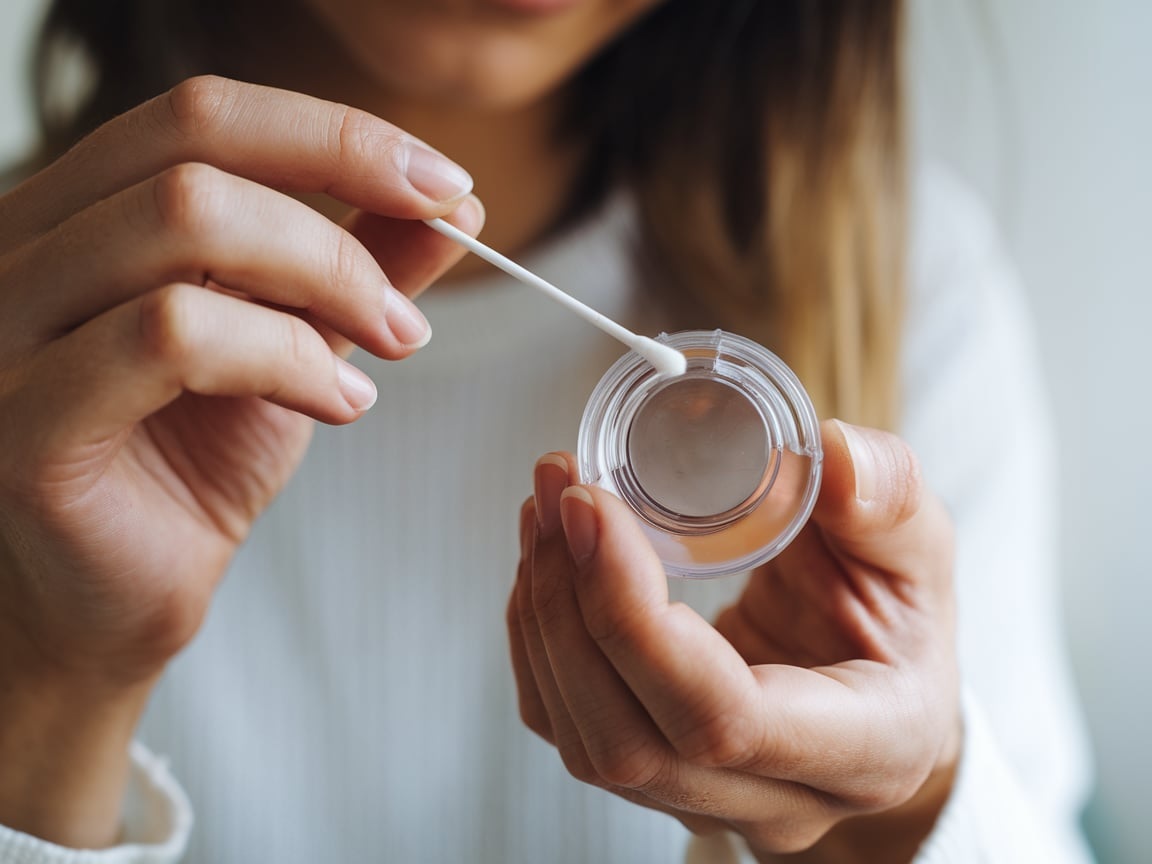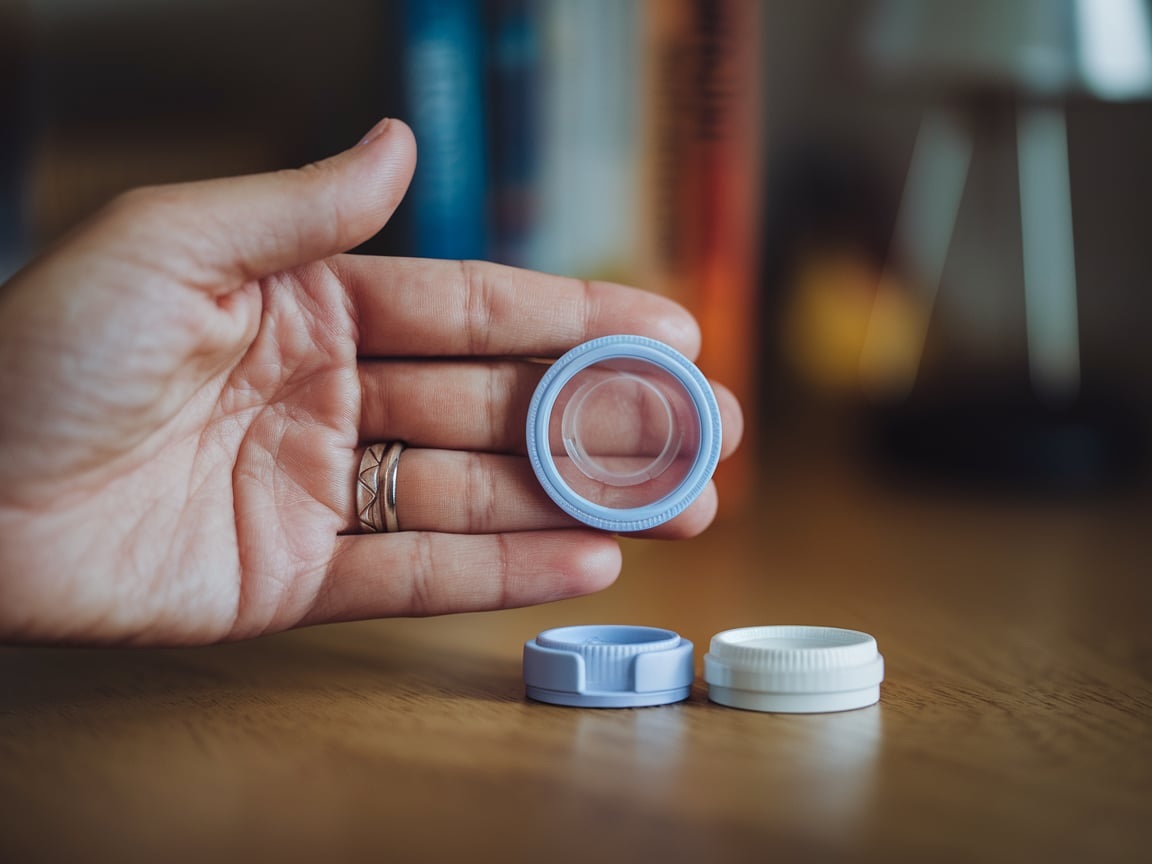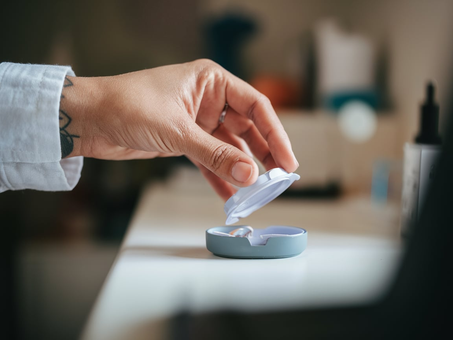How Often Should I Replace My Contact Lens Case?
Have you ever wondered how often you should replace your contact lens case? You can forget about it, but always changing your lens case is the most important thing you can do for your eyes. Here is why you should care and how to keep your eyes in top shape.
Why Replacing Your Contact Lens Case Matters
Your contact lens case is not only a box to store your lenses; it’s a potential source of bacteria and fungi. Microbes build up even over time, despite frequent cleaning and can increase the chance of eye infection. Cleveland Clinic reports that contaminated cases can be linked to deadly eye disorders such as keratitis, which can result in blindness if left untreated.
How Often Should You Replace Your Contact Lens Case?
Eye care professionals generally recommend replacing your contact lens case every three months.
However, this can vary based on individual usage and hygiene practices. If you notice any cracks, discoloration, or residue that doesn't wash away, it's time for a new case, even if it's been less than three months.
Best Practices for Contact Lens Case Hygiene

To avoid eye infections and make wearing your contact lenses comfortable, it is crucial that you clean your contact lens case properly. If you do not attend to this part of lens care, harmful microorganisms will build up on your lenses, which can be dangerous to your eyes. This is what you should be doing to prevent dirt and debris in your lens case:
Daily Cleaning
Once you’ve put in your lenses, remove the old solution from the case. Clean the case thoroughly with a new contact lens solution (not water) and let the cases air dry without the caps on. This routine cleans out residual debris and helps minimize bacterial growth.
Avoid Water
Never rinse your case or lenses with tap water. Water can transport pathogens such as Acanthamoeba and cause life-threatening infections. Even filtered water isn’t effective at disinfecting your lenses.
Use a Fresh Solution
Fill your case with a new solution each time you store your lenses. Old solution loses its disinfectant power by being reused or "topped off". Using a fresh solution is still best for cleaning and reduces contamination risks.
Proper Storage
Maintain your lens case in a dry, clean place. Never go into damp areas such as bathrooms, where bacteria grow. Keeping the case away from humidity reduces microbial activity and preserves the lenses.
The Risks of Neglecting Case Replacement
Failing to replace your contact lens case regularly can lead to serious eye health issues. A contaminated case increases the risk of infections such as microbial keratitis, which can cause pain, redness, and even permanent vision loss.
Choosing the Right Contact Lens Case
Not all contact lens cases are created equal. When selecting a new case, consider the following:
- Material: Opt for cases made of durable, medical-grade plastic.
- Design: Some cases come with antimicrobial properties or are designed for specific types of lenses, like rigid gas permeable lenses.
- Ease of Use: Choose a case that's easy to open, clean, and dry.
FAQs

Can I boil my contact lens case to disinfect it?
It’s not suggested to boil, as it can warp the plastic and doesn't guarantee sterilization. It's best to clean with contact lens solution and replace the case every three months.
Is it safe to use homemade saline solutions for cleaning my lens case?
No, homemade solutions don’t sterilize and disinfect like store-bought contact lens solutions and can spread harmful bacteria.
What should I do if I accidentally use tap water to rinse my lens case?
In this case, please be sure to get your lens case changed right away and don’t use the contaminated one to avoid getting your eyes infected.
Can I store my contact lenses in the case without a solution if I plan to wear them later the same day?
No, always keep lenses hydrated and disinfected in the proper contact lens solution, regardless of how long you are storing them.
Are there specific contact lens cases for different types of lenses?
Yes, some cases are made for particular lenses like rigid gas permeable lenses. Contact your eye care provider for recommendations specific to your lenses.
Lens Hygiene is Beyond Cleaning Your Contacts
Contact lens care doesn’t just mean cleaning your lenses; the contact lens case should also be replaced regularly. With these precautions, you can significantly reduce the likelihood of eye infections and keep your eyes comfortable and clear. Your eyes are priceless — little changes you make to keep them in good shape can lead to a lifetime of healthy sight.
 Save yourself from getting into rush hours and buy your contacts online.
Save yourself from getting into rush hours and buy your contacts online.







